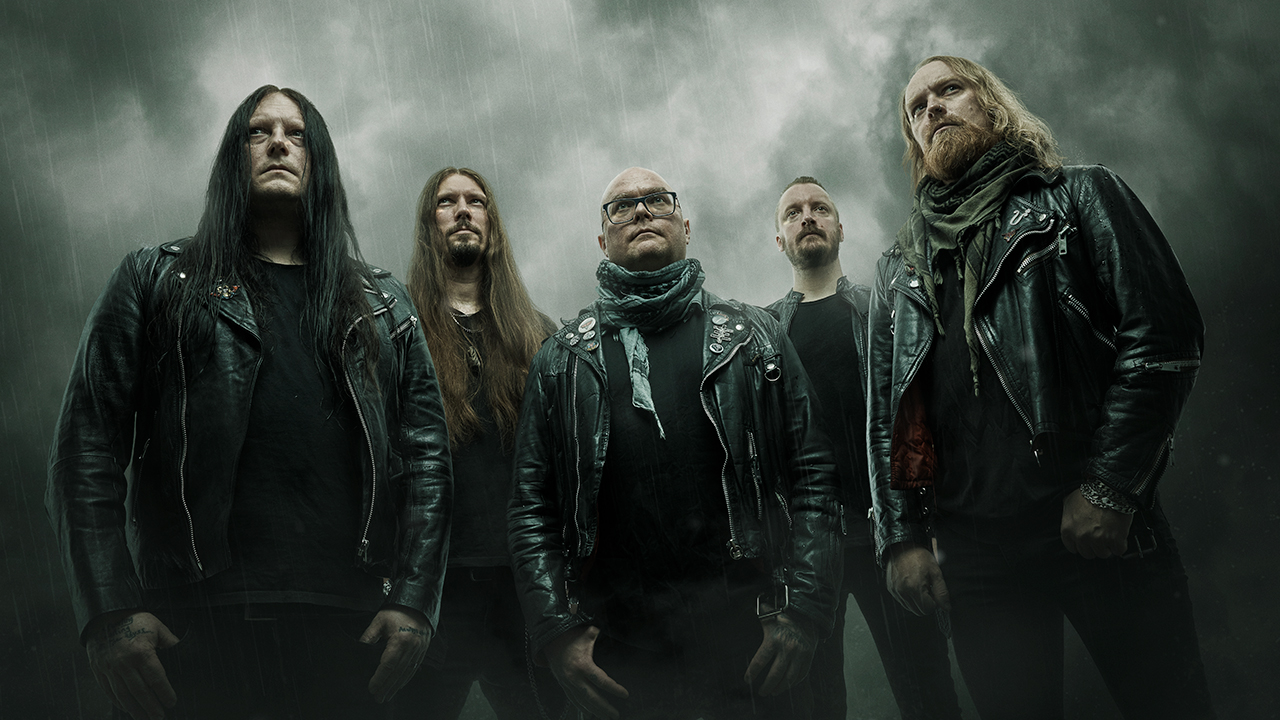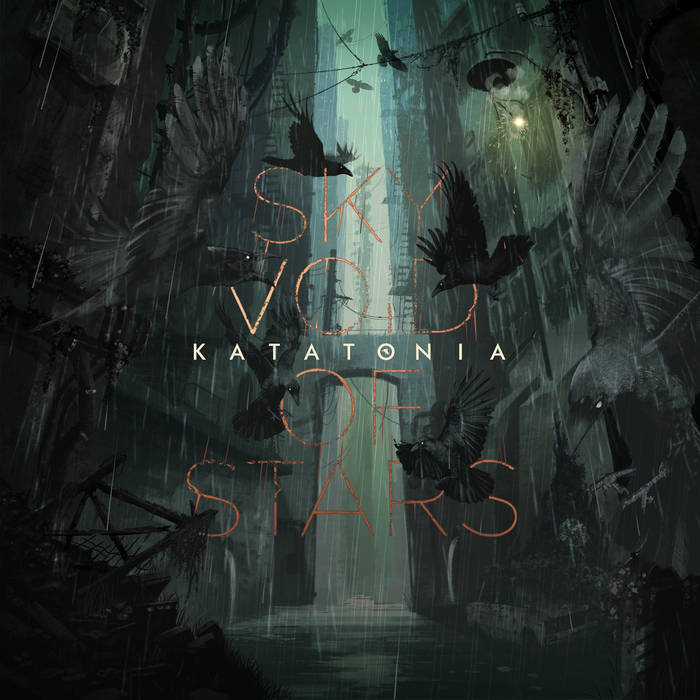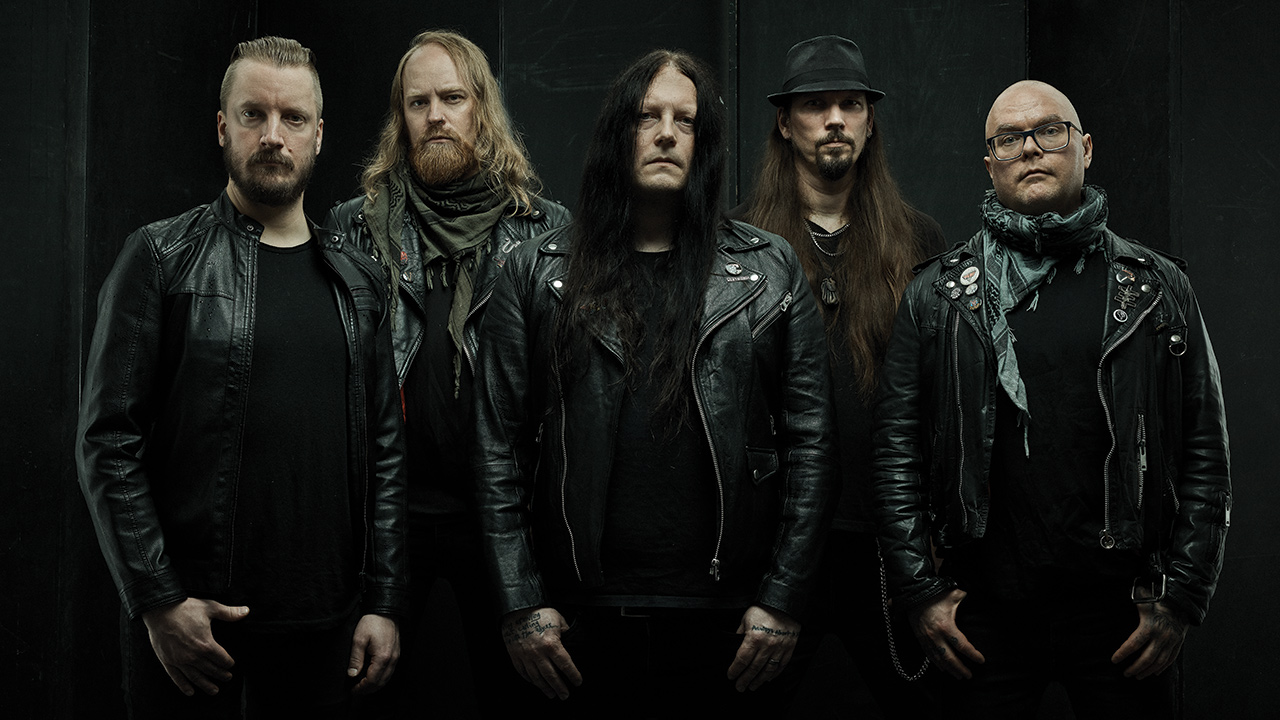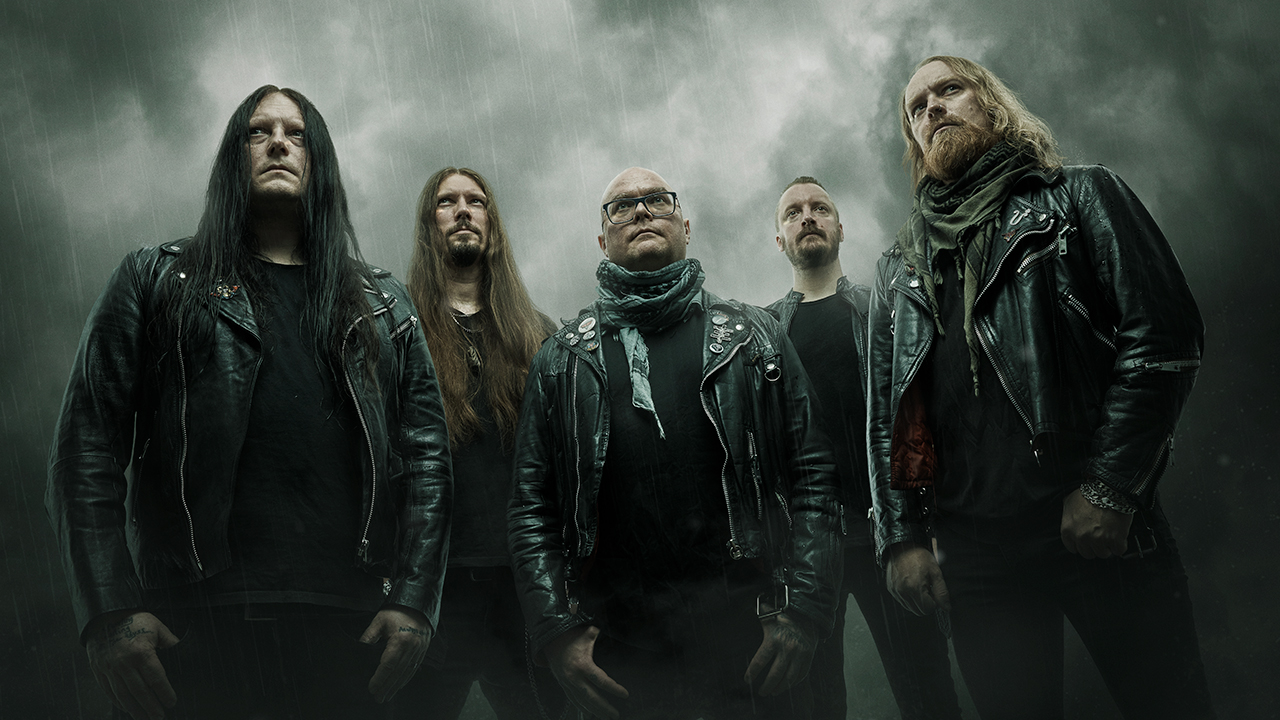
After 32 years in the shadows, Katatonia finally allowed sunlight to pierce their darkness with Sky Void Of Stars. In 2023 vocalist Jonas Renkse refused to call their 12th album happy, though
Katatonia have always been a serpentine band. With each new album, they
shed their skin to unveil an evolving creature underneath. It’s something that’s earned them countless accolades as they’ve grown from death metal upstarts to cinematic, prog rock veterans. Despite their progressive evolution, however, the Swedes, who celebrated their 30th anniversary in 2021, have always kept a shroud of darkness overhead. What makes their 12th album, Sky Void Of Stars, so intriguing then, is that those shadows now seem to be dissipating. The masters of melancholia have never sounded as upbeat and hopeful as they do here. Just don’t call it a happy album.
“The album is very energetic and uptempo for us,” admits vocalist Jonas Renkse. “It’s straight to the point, but I wouldn’t say it’s a happy record. It’s still sad in its heart.”
Many albums were written while the world was locked down, but for Sky Void Of Stars’ predecessor, City Burials, Katatonia had the unexpected experience of releasing it into that isolated world. Instead of packing their bags and traversing the globe in support of the record, upon its release, their momentum faded
away. While fans sat at home soaking up its musical contents, for its
writers, there was a strange sense of ‘What’s next?’
“Since we couldn’t tour, we didn’t really promote the album,” says Renkse. “But instead of just lying on the couch and waiting for something to happen,
I decided to start writing again.
“It was me doing the album alone because I wasn’t sure what it was going to be in the beginning,” he reflects. “I was certainly writing for Katatonia, but the uncertainty of the state of the world at the time just made me keep writing. I was keeping the music to myself in the beginning because I was just writing for myself, to keep myself occupied. It wasn’t until I started to have a good set of songs that I started sharing my ideas with Anders [Nyström, guitarist] to hear his opinion and see if he had any production ideas, and then to the rest of the band.”

As the musical plot lines of the record’s 11 songs were being weaved together by Renkse, playing to a live audience felt like a distant idea. To an extent, then, the album is a love story to the stage and spurred on by a longing to return to it. While Renkse is dismissive of Sky Void Of Stars being a happy album, the upbeat energy and immediacy that drives it derives from a craving to feel even just a hint of the irreplaceable adrenaline rush that live performance brings.
“Writing music that was a lot more immediate felt like an important thing to do. I was missing being onstage and being on tour. I was missing every aspect of live music. So, I found myself writing songs that I would love to perform live. Playing live onstage is a very unique experience, it’s a totally different universe from being in a studio. So, having the adrenaline of playing live in mind when writing, even if it was a little bit subconscious, was very comforting for me. It definitely shaped the sound of the album.”
Fuelled by that fresh immediacy, lead guitars are more prominent on this record than any previous release under the Katatonia moniker, adding to the adrenaline rush chasing that underlines its creation. For that, guitarist Roger Öjersson is to thank.
The musician, who entered the fold in 2016, has a colourful history, having performed in both blues and death metal bands. He was also part of Pain Of Salvation’s live line-up in 2013 and appeared on their 2014 acoustic album, Falling Home. Now his sumptuous playing adds an evocative and incendiary new dimension to Katatonia’s sound.
“Roger is a super guitarist, so it would be a shame not to use his capability of doing these kinds of solos that we maybe didn’t do so much back in the day,” Renkse says. “It’s important we write music that lets him loose, especially on this kind of record, where guitar solos really add that extra something. I think it’s also good for him to be part of the creative process. He hasn’t really written any music for Katatonia yet, so solos are where he can really express himself.”
When Öjersson isn’t strutting his stuff, Renkse is steering the sound.
“With the songs being snappier and more uptempo, it called for the record to be more vocal driven,” he explains, “but it also came from the spontaneity I was feeling when writing the vocal melodies and the lyrics. These days, I tend to write the lyrics at the same time as I’m writing the song. Writing spontaneously, as opposed to really thinking about what I want to sing about or how I want the vocals to feel, is much more rewarding for me as everything comes together much quicker. It made me feel more connected to the music and the moment.”
The spontaneity of the writing process, Renkse adds, helped diversify the topics his lyrics would broach. It became much more subconscious, like a psychiatrist unpicking his true self one song at a time.
“To me, the record title is about having a lack of navigation, the feeling of being lost somewhere, but each song is very individual, and I definitely don’t expect people to interpret these lyrics the same way as I do,” he says. “What those lyrics meant to me as I sang them may mean something completely different to how the listener perceives them. Everyone else’s version is unique and as interesting as mine, probably, so that’s the beauty of the written word and how it connects people and how it talks to different people in different ways.”

Speaking to Prog around the release of their B-sides album, Mnemosynean, in late 2021, Renkse talked fondly of his songwriting partnership with Nyström and their telepathic connection when it came to turning vision into music. So, while his bandmate and longtime friend hasn’t contributed directly to the writing of the record, their connectivity has still greatly influenced the visage of these songs.
“I know what the guys each like to play, how they want to play things. We all speak the same musical language, so when I’m writing, I’m writing for those guys, too. It helps me write music I know we will all love.”
On Impermanence, Renkse receives some wonderful vocal support from Soen frontman Joel Ekelöf. It’s an emotive and evocative progressive ballad that sounds more in keeping with the band’s back catalogue than the brighter tones that preside over much of this album. The pair’s voices coalesce wonderfully and it’s a collaboration that’s been on the cards for a while.
Says Renkse: “It’s something we’ve been talking about doing for some time; just loose talk when we see each other. When I was writing Impermanence I knew this was the song where he must be featured because he could do wonders with his voice. Especially when we are doing it together, letting the voices meet. Everything fell right into place.”
Executed with an unfamiliar urgency, Sky Void Of Stars’ songs are still typically bleak but there’s a hint of a happy ending, at long last, for some of the twisted tales. It feels that hope springs eternal in the immediacy of these songs, even if Renkse swerves the topic. The band’s constant evolution has always been unpredictable; it would have been impossible to guess how the brazen death metal of their beginnings would mature into such intelligent and alluring but dark sonic explorations. Yet, for a band who have so stylishly built a reputation for unpredictability, it’s hard to imagine that anyone foresaw their signature darkness one day sounding as paradoxically hopeful as it does on this impressive and, for Renkse, necessary new album. Don’t expect it to last, though, as Katatonia’s skin will begin to shed again soon.
“I hope for the next album,” he reveals, “the rest of the band will come back into the songwriting process. I want to build on the nice chemistry that we have. The teamwork is something that I missed with the album, even though I am super-happy with it.”


Hi there! I know this is kind of off topic but I was wondering which blog platform are you using for this site? I’m getting tired of WordPress because I’ve had issues with hackers and I’m looking at options for another platform. I would be awesome if you could point me in the direction of a good platform.
Together with almost everything which seems to be developing inside this subject material, many of your opinions happen to be very stimulating. Having said that, I beg your pardon, but I do not give credence to your entire strategy, all be it stimulating none the less. It would seem to everybody that your opinions are actually not totally validated and in actuality you are generally yourself not really thoroughly convinced of your argument. In any event I did appreciate looking at it.
I really like your wp theme, where did you down load it from?